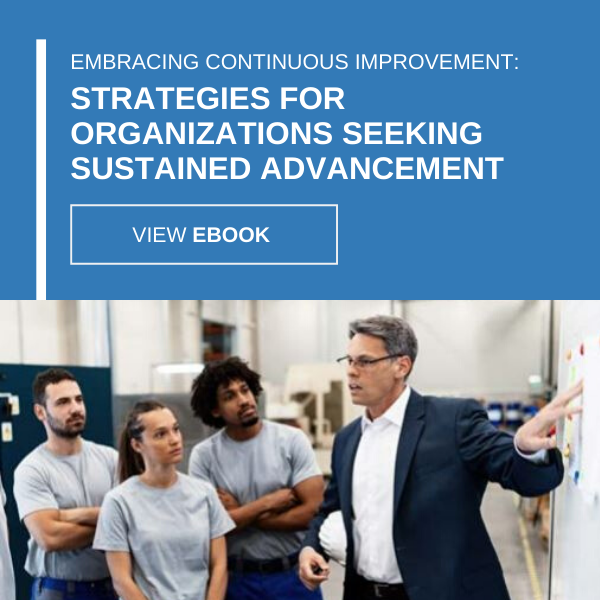-
Subscribe to Blog:
SEARCH THE BLOG
CATEGORIES
- Aerospace
- Asset Maintenance
- Automotive
- Blog
- Building Products
- Case Studies
- Chemical Processing
- Consulting
- Food & Beverage
- Forestry Products
- Hospitals & Healthcare
- Knowledge Transfer
- Lean Manufacturing
- Life Sciences
- Logistics
- Manufacturing
- Material Utilization
- Metals
- Mining
- News
- Office Politics
- Oil & Gas
- Plastics
- Private Equity
- Process Improvement
- Project Management
- Spend Management
- Supply Chain
- Uncategorized
- Utilities
- Whitepapers
BLOG ARCHIVES
- September 2025 (1)
- August 2025 (2)
- July 2025 (2)
- June 2025 (4)
- May 2025 (1)
- April 2025 (1)
- March 2025 (1)
- February 2025 (4)
- January 2025 (4)
- December 2024 (4)
- November 2024 (2)
- October 2024 (6)
- September 2024 (5)
- August 2024 (5)
- July 2024 (6)
- June 2024 (3)
- May 2024 (3)
- April 2024 (4)
- March 2024 (3)
- February 2024 (4)
- January 2024 (5)
- December 2023 (2)
- November 2023 (1)
- October 2023 (6)
- September 2023 (3)
- August 2023 (4)
- July 2023 (2)
- June 2023 (3)
- May 2023 (7)
- April 2023 (3)
- March 2023 (3)
- February 2023 (5)
- January 2023 (6)
- December 2022 (2)
- November 2022 (5)
- October 2022 (5)
- September 2022 (5)
- August 2022 (6)
- July 2022 (3)
- June 2022 (4)
- May 2022 (5)
- April 2022 (3)
- March 2022 (5)
- February 2022 (4)
- January 2022 (7)
- December 2021 (3)
- November 2021 (5)
- October 2021 (3)
- September 2021 (2)
- August 2021 (6)
- July 2021 (2)
- June 2021 (10)
- May 2021 (4)
- April 2021 (5)
- March 2021 (5)
- February 2021 (3)
- January 2021 (4)
- December 2020 (3)
- November 2020 (3)
- October 2020 (3)
- September 2020 (3)
- August 2020 (4)
- July 2020 (3)
- June 2020 (5)
- May 2020 (3)
- April 2020 (3)
- March 2020 (4)
- February 2020 (4)
- January 2020 (4)
- December 2019 (3)
- November 2019 (2)
- October 2019 (4)
- September 2019 (2)
- August 2019 (4)
- July 2019 (3)
- June 2019 (4)
- May 2019 (2)
- April 2019 (4)
- March 2019 (4)
- February 2019 (5)
- January 2019 (5)
- December 2018 (2)
- November 2018 (2)
- October 2018 (5)
- September 2018 (4)
- August 2018 (3)
- July 2018 (2)
- June 2018 (4)
- May 2018 (3)
- April 2018 (3)
- March 2018 (2)
- February 2018 (2)
- January 2018 (1)
- December 2017 (1)
- November 2017 (2)
- October 2017 (2)
- September 2017 (1)
- August 2017 (2)
- July 2017 (2)
- June 2017 (1)
- April 2017 (3)
- March 2017 (3)
- February 2017 (2)
- January 2017 (2)
- December 2016 (2)
- November 2016 (4)
- October 2016 (4)
- September 2016 (3)
- August 2016 (6)
- July 2016 (4)
- June 2016 (4)
- May 2016 (1)
- April 2016 (3)
- March 2016 (4)
- February 2016 (2)
- January 2016 (4)
- December 2015 (3)
- November 2015 (3)
- October 2015 (1)
- September 2015 (1)
- August 2015 (4)
- July 2015 (6)
- June 2015 (4)
- May 2015 (7)
- April 2015 (6)
- March 2015 (6)
- February 2015 (4)
- January 2015 (3)
CONNECT WITH US
Tag Archives: Outside Resource
If your business has a problem or obstacle you can’t solve — a slowdown in throughput, trouble on the line, machinery problems, supply chain issues, demand outweighing supply and more — and your team is struggling to overcome the challenge, it’s time to bring in an operations management consultant.
Operations management consultants will first look at your current operations model, systems and day-to-day processes of getting the job done. Then, they work with your team to implement positive, impactful changes to help your business strive toward operational excellence.
Why Hire an Operations Management Consultant
Is it the right time to hire an outside resource? Perhaps. Before we can answer that question though, let’s look at the reasons why you would need to bring in some help. While each business and situation is different, we find companies seek an operations management consultant due to one or more of these common reasons:
- Current processes aren’t getting the job done
- You need fresh eyes to assess a situation
- Objectivity
- Process improvement expertise
- When you don’t know if it’s time to upgrade assets
- Time and workload snags
- Resistance to change
- Planned shutdowns or outages
- When you need to reduce operating costs or improve throughput and efficiency
Operations management consultants can be the ‘horsepower’ your team needs to overcome these various challenges to achieve improvements quickly and effectively.
Now, for the burning question… When is the right time to bring in operations consultants? It boils down to dissatisfaction with the status quo, problems organizations can’t seem to overcome, and challenges they’re not equipped to solve. But, like many things in life, it’s not that simple.
For that reason, our subject matter experts at USC Consulting Group walk you through the process in the following eBook:
This eBook covers various concepts, including:
- Defining what are operations management consultants
- The benefits of an outside resource
- The best time to bring them in
- Where consultants can help your business the most
If you have questions about operations management consulting and what it can do for your business, give us a call or email us at info@usccg.com. We want you to be well-informed so you can feel comfortable and confident bringing in some help.
If your company is looking for process improvements, greater efficiency, operations upgrades and generally a greasing of the gears in order to function at a higher level, that’s great! Now the question becomes: Do you hire an operations management consulting firm or rely on your internal improvement team?
Here’s a look at both options:
Internal improvement teams
What are internal improvement teams, exactly? In general, they’re full-time employees within an organization, usually (but not always) within the HR function. They act as advisors, change agents, process improvement experts, coaches or trainers. But it doesn’t have to be as formal as having a dedicated “internal consultant team.” Oftentimes, companies looking to improve processes pull together a team of people from different departments within the organization to tackle a problem or challenge that is impeding productivity.
Some other aspects, including pros and cons, of internal teams:
Cost. On the surface, using an internal team may seem cheaper than hiring an outside firm because the company is not paying an outside consulting fee. But figuring in salaries, benefits and all of the other expenses involved with full-time employees that are dedicated to process improvement, those savings can dry up. Also, if you’re using an internal team made up of people from different departments, there is the issue of time away from their usual job functions and the loss of productivity that can result from that.
Company knowledge. Internal people have an immediate understanding of the organization. No learning curve needed. There’s already a deep knowledge of the culture, the processes and the “unspoken rules.”
Accountability. Some external consultants “fix it and forget it.” In other words, they swoop in, offer recommendations for change and swoop out, leaving the company to implement the changes and deal with what comes next. (Note: We do NOT do that at USC Consulting Group) Internal people are there, onsite, through it all, and after it all.
Internal politics. This is one of the big “cons” of using an internal team. In many workplaces, you’ve got internal politics and drama running through everything. Who takes recommendations and advice from whom can become an impediment to progress. Certain people may want to be the one to come up with whatever fix is needed, and if they aren’t, they can put up roadblocks or sow seeds of negativity. The internal pecking order can rule the roost. Not ideal when you’re talking about making process improvements, which typically involve changing the way “we’ve always done it.” That’s a delicate endeavor, even for outside consultants. When you have Phil from HR telling a 30-year veteran on the line there’s a better way to do his job, it doesn’t go over very well.
Internal view. Internal teams have a great view of their organization, but not what’s going on out there in the industry at large. They are also not necessarily on top of the latest developments in process improvements, and certainly aren’t experts in things like Lean Six Sigma.

Operations management consultants
Operations consulting, simply put, is a discipline designed to improve your company’s internal operations and processes, making them more efficient, streamlined and ultimately, profitable. At USC Consulting Group, we’ve been dedicated to that since 1968.
Operations consultants will first look at your current operations model, systems and day-to-day processes of getting the job done. They talk with front-line workers, executives and everyone in between. Listening is a big part of the job. They employ methodologies like Lean Six Sigma, the Fishbone, the Five Ms and other tactics to uncover what’s bedeviling your operation and create ways to solve those problems.
Some operations consultants are advisory consultants, or “boardroom consultants,” who perform a two- to three-week study and provide a book of recommendations to help you out, and then hand it to you and go on their way. Implementing consultants, like USC, roll up their sleeves and work with a company’s internal teams to help implement the changes, and ensure the sustainability of those improvements.
Other features of outside consultants include:
Above the fray. This is a main reason execs hire outside consultants. An outside firm is not subject to internal politics and company red tape. They can make the changes necessary for improvements to get results without stepping on anyone’s toes. Oftentimes, recommendations for change go down easier when delivered by someone outside the organization.
A fresh set of eyes. You know what they say about the forest for the trees. Sometimes, when you’re too close to a problem or challenge, you can’t see the big picture of how to solve it. Operations consultants are outside experts who can look at your operations with a fresh set of eyes.
Horsepower. In many cases, operations management firms actually augment the efforts of internal teams and provide “horsepower” to improvement initiatives and help achieve results quicker.
Cost. Outside firms are hired for limited engagements and are not full-time employees. Therefore, a company does not need to provide salaries, benefits and other costs for full-time employees who are part of their internal teams. Yes, the upfront investment for an outside firm is more than you would pay your internal employees. However, once the project engagement is complete, those consulting costs are removed from the ledger, but the benefits are realized for years after.
Industry expertise. Another facet of bringing fresh eyes to a challenge is the fact that those eyes have seen a thing or two. Consultants like USC Consulting Group have worked in the industry for decades and have seen how similar companies have solved similar problems and challenges. While every situation is unique, the decades-long expertise in operational improvements is impossible to duplicate in-house.
Process improvement expertise. It’s a fair bet that companies don’t have many black belts in Lean Six Sigma on staff. LSS is focused on eliminating waste and improving throughput, and it takes years to become an expert in it. External consultants like USC bring that expertise, and even train your staff to implement these tools.
A final thought: Sure, we’re biased. We’re a consulting firm with 55+ years of experience helping companies improve their efficiency and ultimately boost their bottom lines. However, there is a stigma about consulting that seems to be rumored. To clear up this misconception, read our blog “Debunking Myths About Operations Management Consulting.”
Which option should you choose?
Bottom line is you need to make a decision that is best for your business. Whether utilizing your own internal improvement teams or employing an outside consultant, the main focus is reducing your operating costs and improving your productivity and efficiency.
If you would like to talk with one of our subject matter experts to see if USC would be the right fit for your improvement project, give us a call.







